Auto Insights Newsletter | February 2024

Affordability key to consumer spending in SA
Could (more) manufacture of affordable vehicles help lift the country’s automotive sector?
Affordability is a key factor driving consumer behaviour in South Africa, and it affects the auto industry as much as any other, Paul-Roux de Kock, Chief Analytics Officer at Lightstone, told a recent Automechanika Johannesburg CEO event.
The CEO breakfast attracted senior executives from both the private and public sectors, and de Kock was one of three speakers to flesh out opportunities and challenges facing South Africa’s automotive sector.
De Kock highlighted two insights from South Africa’s retail landscape which underscored the country’s “affordability” focus. “In our new normal we see that average dwell time at malls are back where they were before the Covid lockdown in 2020 (see graph below), but interestingly the number of visits has dropped by 20%”, he said.
Mall visits compared to pre lockdown levels
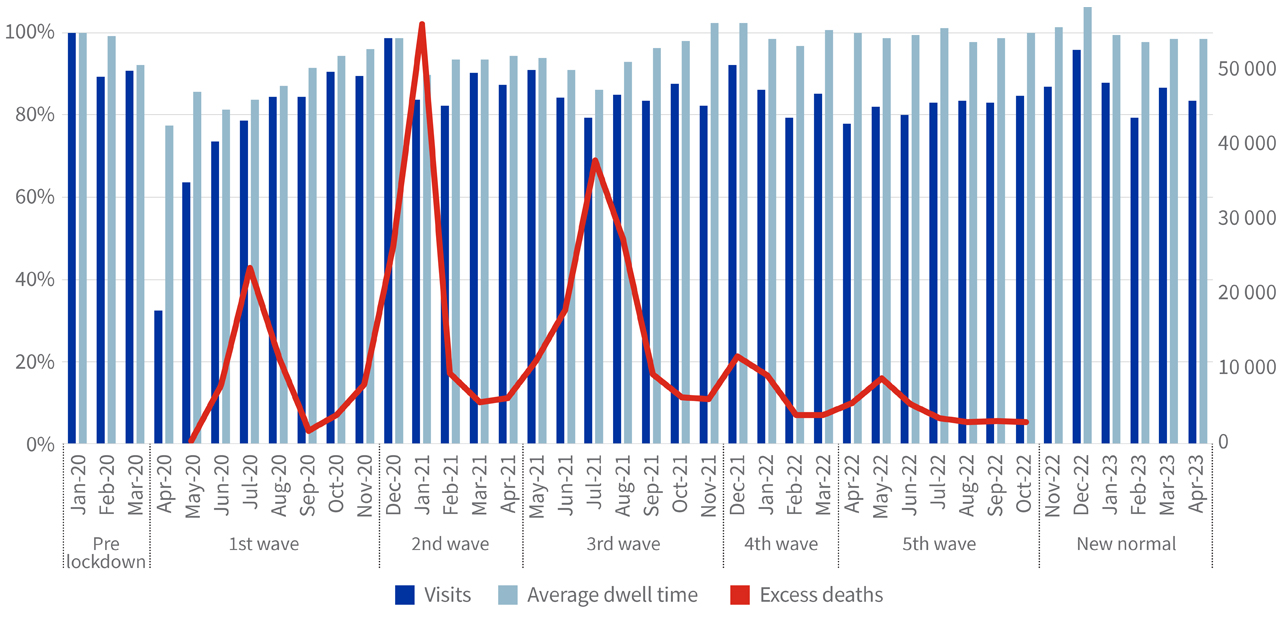
While e-commerce explains much of the difference, de Kock said Lightstone picked up another phenomenon when looking at retail activity at fuel stations.
Service station visits by income band
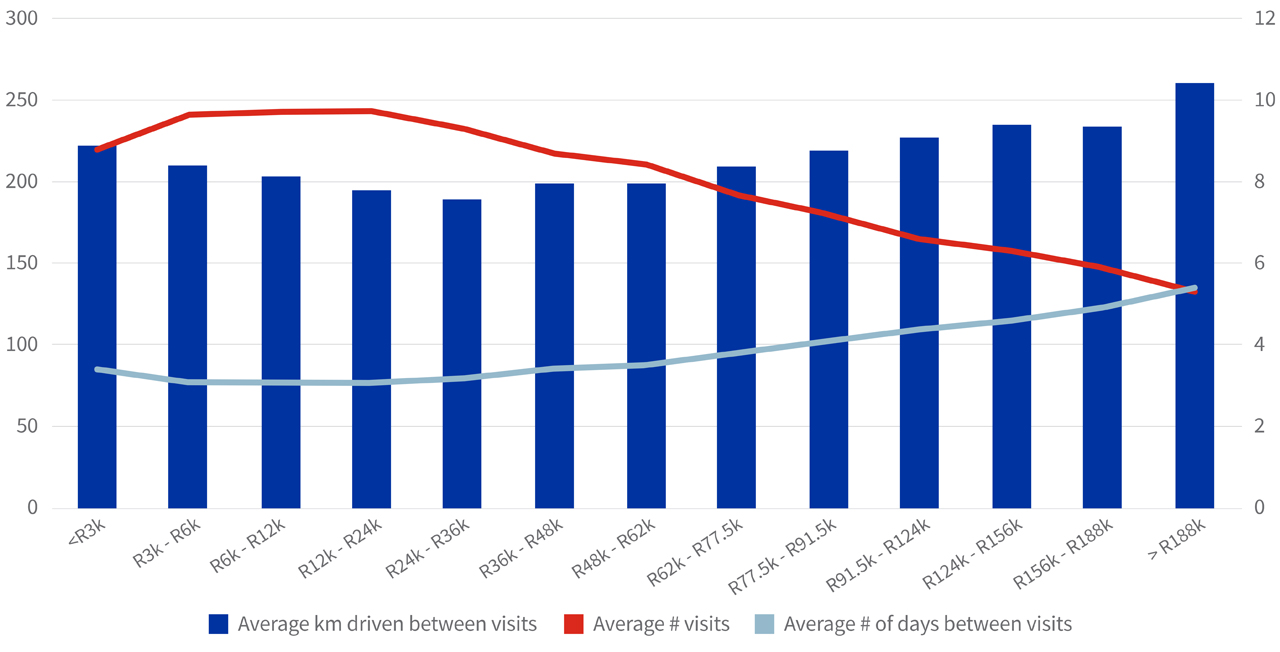
“Increasingly, lower and middle income households have chosen to stop more regularly at fuel stations for convenience shopping, with the sweet spot being the middle to lower income who stop more often, and more regularly at these service stations – on average within three days.”
The “affordability focus” is playing out in the automotive sector too.
South Africa’s new vehicle sales performance mirrored Australia’s recovery following the Covid lockdown, until 2022, when South Africa fell behind. The graph below shows how South Africa’s performance has been better than the USA’s but not as strong as China’s – and recently, falling behind Australia.
New vehicle sales recoveries post Covid
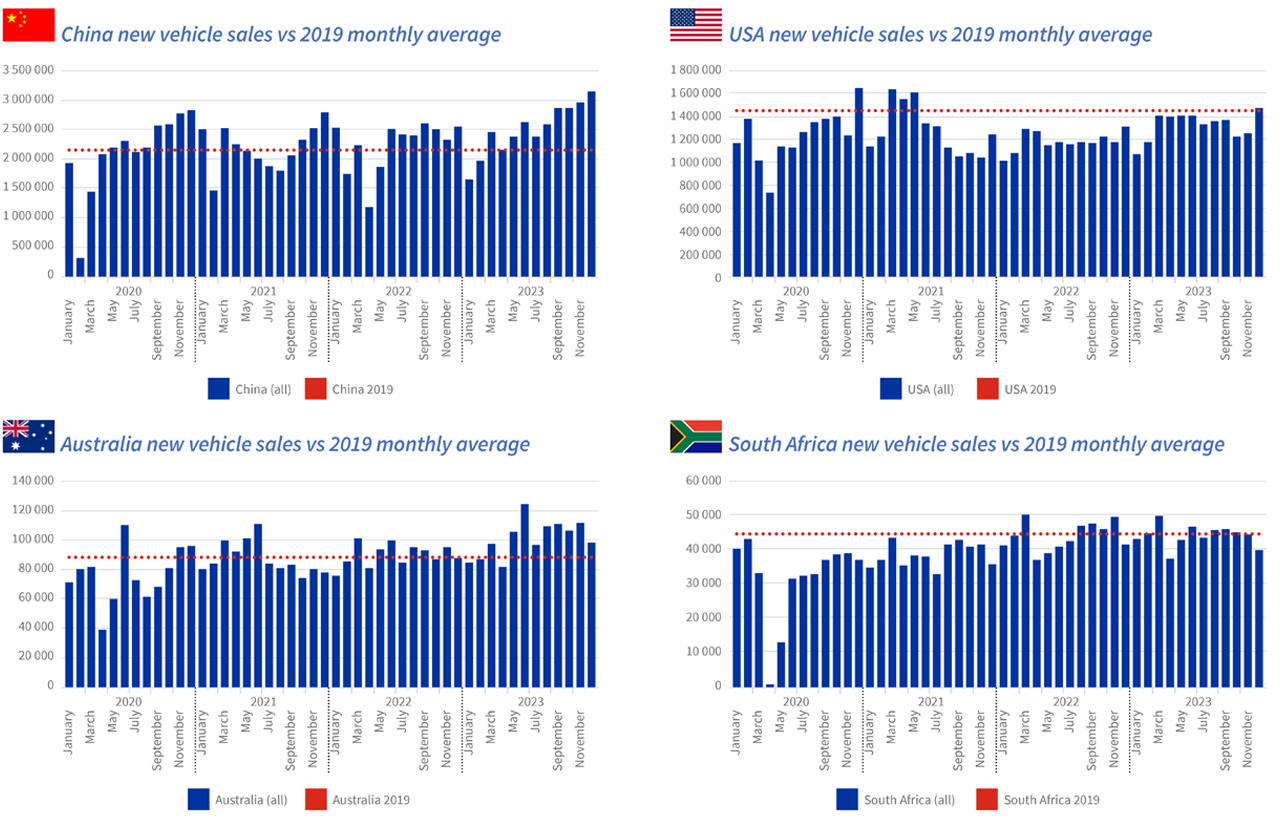
The graph below demonstrates how affordability is redefining the country’s Passenger car market, with a massive shift from the premium segment to more affordable mid-level vehicles offering similar functionality, comfort, guarantees and service plans.
Segment share: South African passenger market
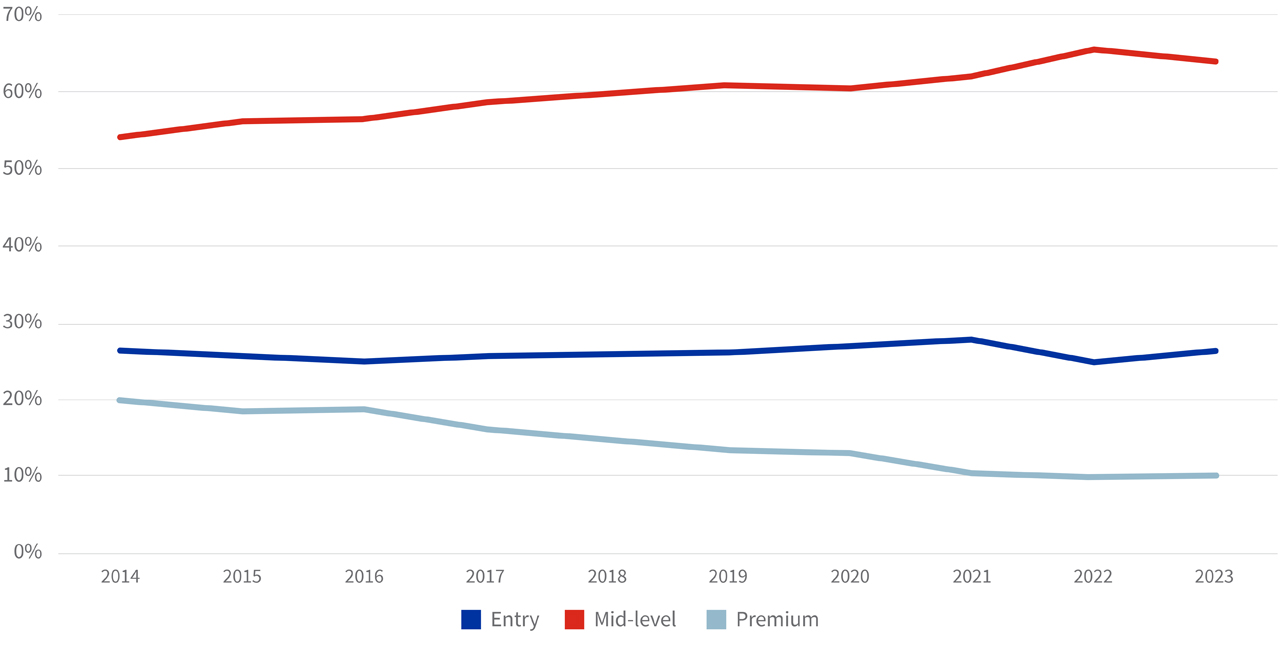
The shift to affordability is changing buyer preferences at the showroom.
Suzuki sales have shot up from nowhere to 3rd best-selling brand, and newer brands are battling it out to earn a place in the top ten at the expense of premium brands such as BMW and Mercedes-Benz, who have dropped out of the top ten altogether.
In other sales changes since 2018, Nissan and Honda have swopped places, Renault has held on to 6th position, Ford dropped from 3rd in 2018 to 7th in 2023, Kia slipped from 7th to 8th while Isuzu (9th) and Haval (10th) make up the top ten table.
Light vehicle sales ranking by brand
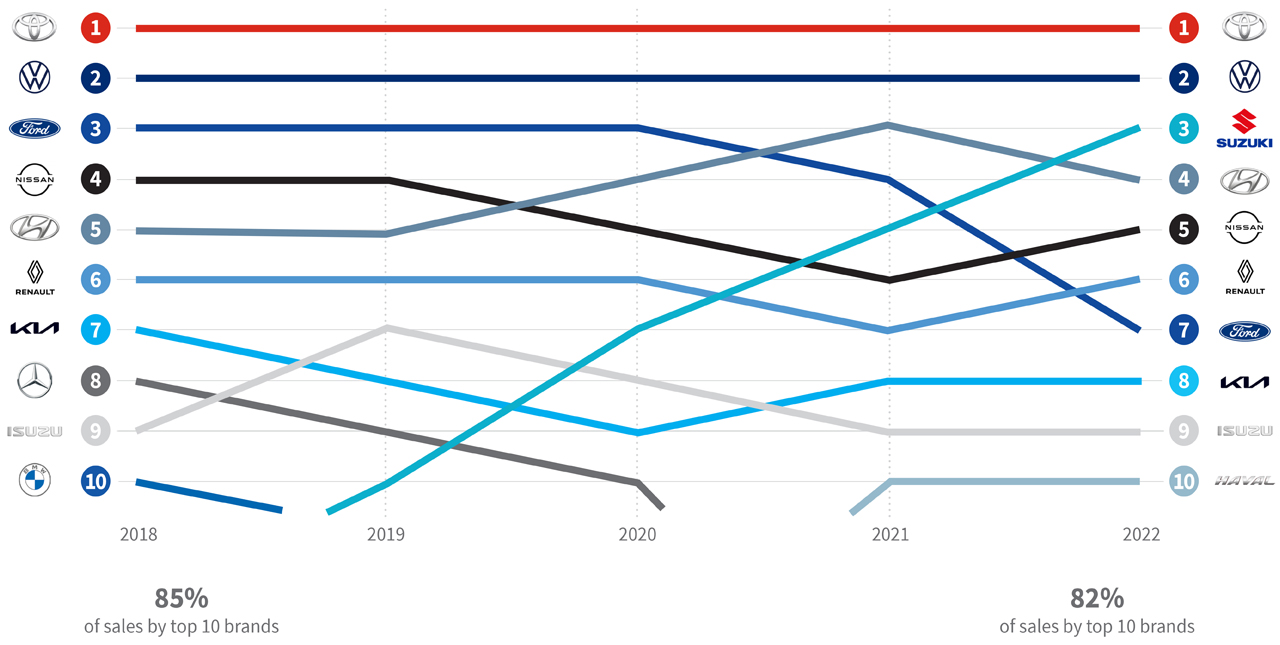
In 2023, Ford’s strategy with its Ranger paid off and they moved back up to 5th spot in the sales table, while Izuzu and Kia swoped places and Chery rocketed into the top 10 from 15th spot, displacing Haval in the process.
As with mall and service station trends, car sales show a definite switch to affordability and underline just how tough it is for consumers in South Africa.
De Kock said the economic challenges and consumer shifts have created a predicament for South Africa’s automotive industry.
Many of new brands were being produced in less costly environments such as India, and this meant South African buyers would become more reliant on imported vehicles and parts. This reliance on imports, when combined with natural disasters (such as flooding) and the political challenges which OEMs faced in their production and export processes, was negatively impacting sales in South Africa.
De Kock said the various challenges suggested a useful discussion could take place with government around:
- Whether excessive import duties remained an effective strategy to protect the local industry;
- A possible focus on manufacturing cars, especially EVs, as cheaply as possible to stimulate the market; and
- A need to switch to aggressive pro-business strategies and urgently resolve the countries power, infrastructure and export issues.

.png)
.png)
.png)
.png)